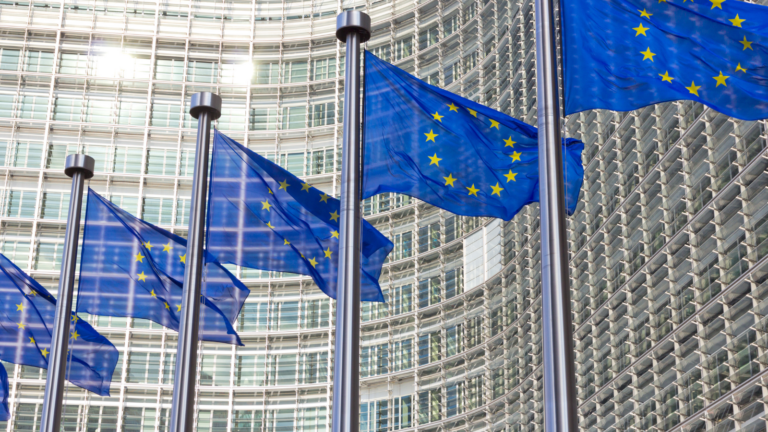CSRD
Master the Corporate Sustainability Reporting Directive

As sustainability reporting becomes an essential pillar of business success, the Corporate Sustainability Reporting Directive (CSRD) establishes a framework for companies to meet rigorous environmental, social, and governance (ESG) disclosure standards. An EU regulation, the CSRD is designed to enhance both the scope and quality of corporate sustainability reporting.
At Acclaro, we offer expert guidance to help your business not only comply with these evolving requirements but also build a future-proof sustainability strategy that drives value, innovation, and resilience.
How CSRD compliance drives value
Navigating the CSRD landscape will do more than just ensure legal compliance – it’s a unique opportunity to enhance your business and stand out in a competitive marketplace. Here’s how achieving CSRD compliance can unlock substantial value for your company:
- Enhanced Reputation: Transparent reporting strengthens brand trust and competitive positioning.
- Access to Capital: As investors are increasingly prioritising companies with strong ESG performance, CSRD compliance is key to unlocking funding and investment opportunities.
- Operational Efficiency: Improved data governance and sustainability measures can reduce costs and drive efficiencies.
- Risk Mitigation: Embedding scenario analysis and climate transition planning strengthens business resilience.
- Innovation & Growth: Proactive sustainability leadership can unlock new business models and market opportunities.
How should my business be preparing for CSRD?
The CSRD is here, and now is the time to act. If you company falls in scope, we recommend taking these important steps:
- Conduct a Double Materiality Assessment – Identify both the risks and opportunities your business faces from an environmental, social and governance perspective.
- Assess Data Readiness – Strengthen systems for ESG data collection and auditability.
- Engage Stakeholders – CSRD compliance requires collaboration with investors, regulators, and your value chain partners. Early engagement ensure alignment with expectations and strengthens partnerships.
- Align with Existing Frameworks – Leverage TCFD, ISSB, and EU Taxonomy to streamline reporting.
- Prepare for Assurance Requirements – As CSRD mandates third-party verification, now is the time to build robust Build internal controls for third-party verification.
Our CSRD services
Acclaro Advisory offers a comprehensive suite of services designed to ensure your business not only meets CSRD requirements but excels in sustainability reporting.
CSRD readiness check: We’ll assess your current sustainability reporting practices, identify gaps, and ensure your compliance with the upcoming CSRD requirements.
Double materiality assessment: Our tailored process identifies both the actual and potential ESG impacts on your business. We’ll work closely with you to map out strategic risks and opportunities, ensuring a comprehensive understanding of your sustainability performance.
Why choose Acclaro?
At Acclaro, our expert consultants are highly trained in the nuances of the CSRD, ensuring your company meets rigorous ESG disclosure standards with confidence.
Now is the time for organisations to act—by investing in robust data infrastructure, governance frameworks, and sustainability leadership, businesses can turn CSRD compliance into a competitive advantage. Partner with Acclaro to future-proof your sustainability strategy and position your company as a leader in responsible, transparent business practices.
Need a hand with CSRD?
One of our team would be happy to have a chat about how we can support you.
FAQs around CSRD
The CSRD has undergone some key updates with the introduction of the Omnibus Regulation. You can read more about what this means and the timeline in our article: ‘CSRD and the Omnibus: What’s Changed?’.
CSRD introduces several significant updates compared to previous frameworks:
- Expanded Scope – Applies to 50,000+ companies, including non-EU firms with significant EU operations. (although this could be reduced by 80% following the EU Omnibus)
- Detailed Reporting Standards – Mandates compliance with European Sustainability Reporting Standards (ESRS).
- Mandatory Assurance – Requires external verification of sustainability data.
- Digital Tagging – Reports must be formatted in machine-readable XBRL for enhanced accessibility.
- Integrated Reporting – ESG data must be part of management reports, rather than standalone sustainability reports.
Resources
CSRD and the Omnibus: What’s being proposed?

Navigating CSRD: Challenges, Opportunities & Success Factors
